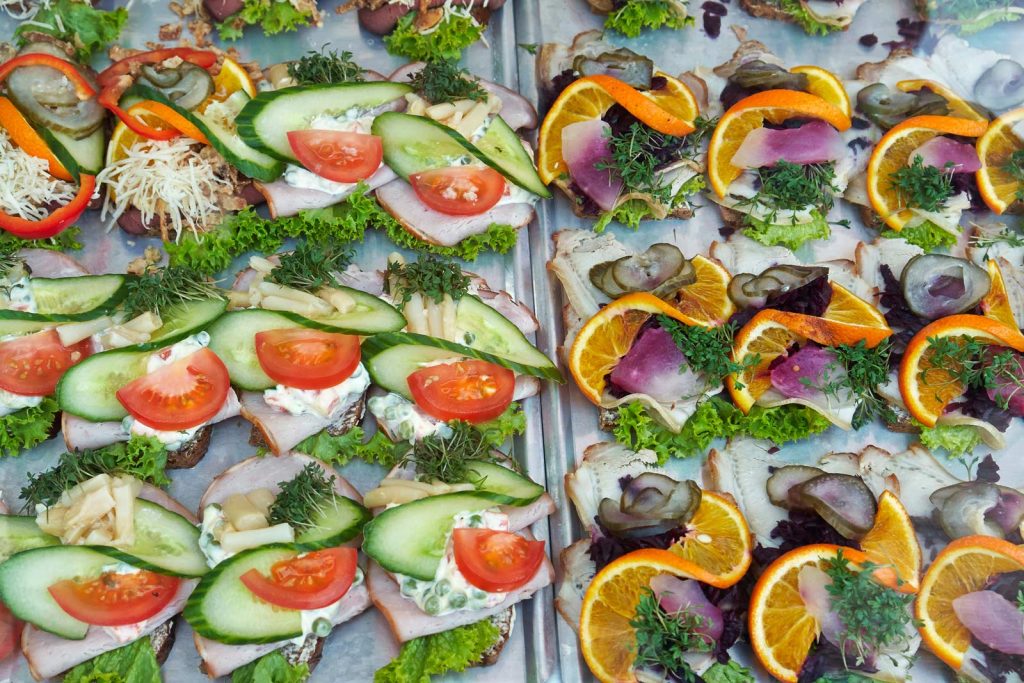Let your tastebuds lead you to Denmark, the happiest country in the world. Many research institutions claim that we need sunshine to keep up our serotonin and happiness levels.
But, during the winter months in Denmark, you’ll be lucky to see seven hours of daylight. So, why are the Danes so happy? One of the reasons is a unique concept called “hygge.” And, to have a good hygge you’ll need delicious Danish food. If you’re a foodie, you may have heard of New Nordic Cuisine.
But, what about the traditional Danish dishes that grandmothers and their mothers before them used to cook? Traditional Danish food is hearty, doesn’t require many ingredients, and makes fantastic home meals.
Traditional Danish Food
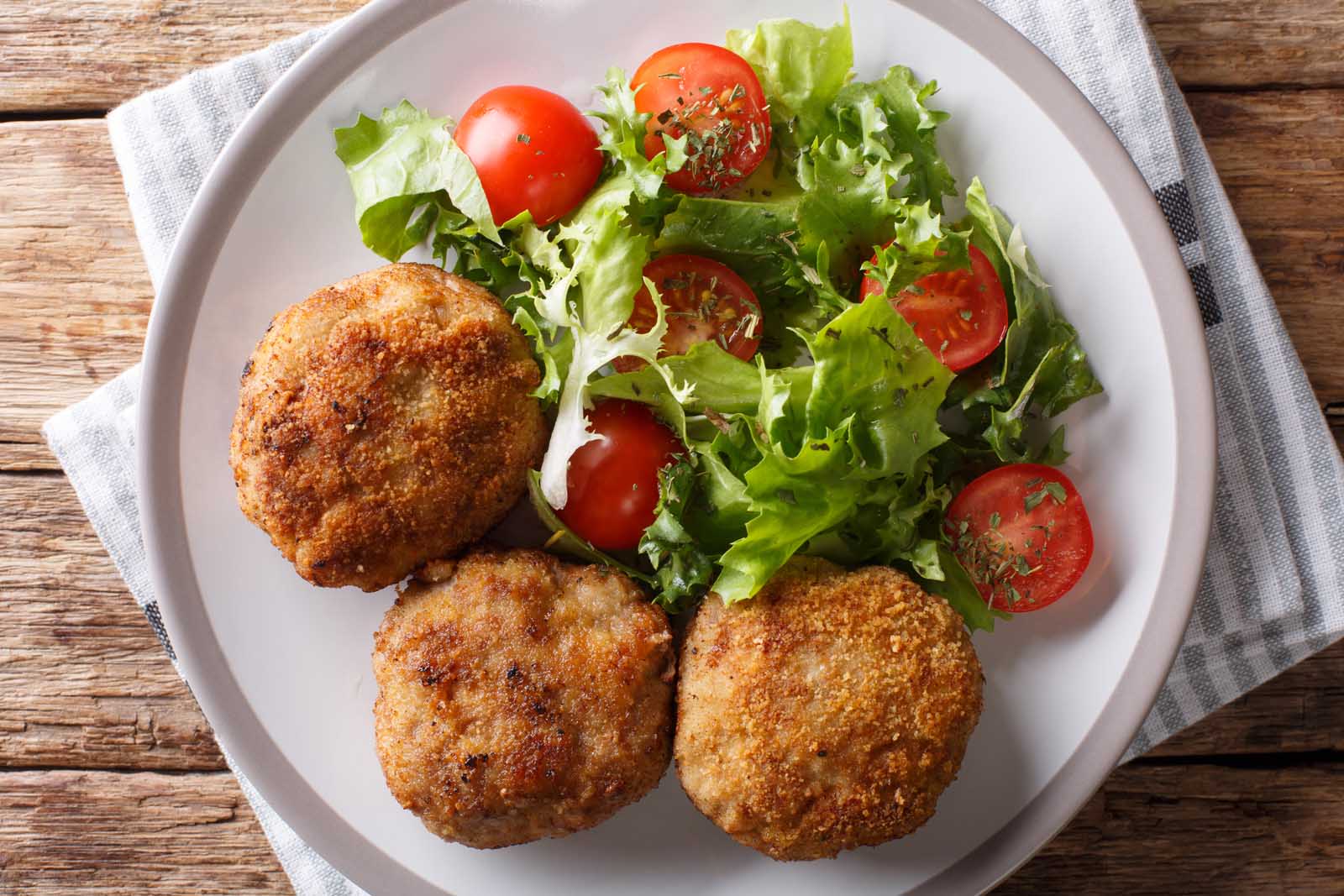
To help get you started in the kitchen, we’ve brought together a list of the top 15 Danish dishes for every occasion. So, grab your grocery list and continue reading. You’ll discover the meaning of hygge and how to make danish dishes that you can cook tonight.
1. Stegt Flæsk Med Persillesovs – Fried Pork Belly With Potatoes and Parsley Sauce (National Dish)
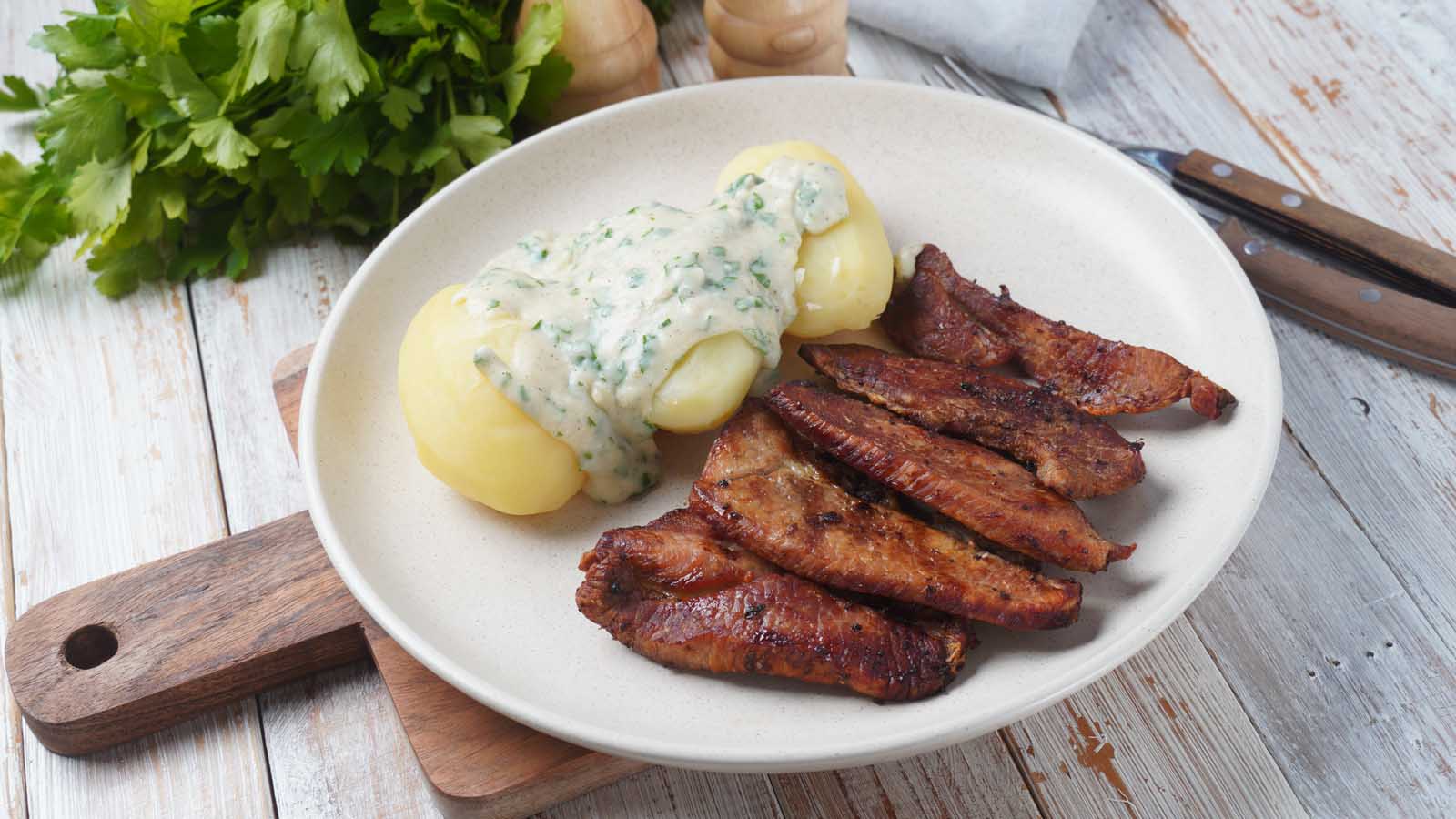
It would be strange to talk about Danish cuisine without starting with the national dish. Stegt flæsk med persillesovs began in the rural kitchens in the 1700s. Although, people began adding boiled potatoes and parsley in the early 1800s.
Originally a winter dish, it has grown in popularity as a BBQ meal in recent years. Be warned though because if you follow a traditional Danish food recipe, it is over 700 calories. That is well above the recommended dinner allowance of 500 calories.
Stegt flæsk med Persillesovs has been the national dish since 2014. However, “Burning Love” looks like it might soon snatch the honor.
2. Brændende Kærlighed – Burning Love
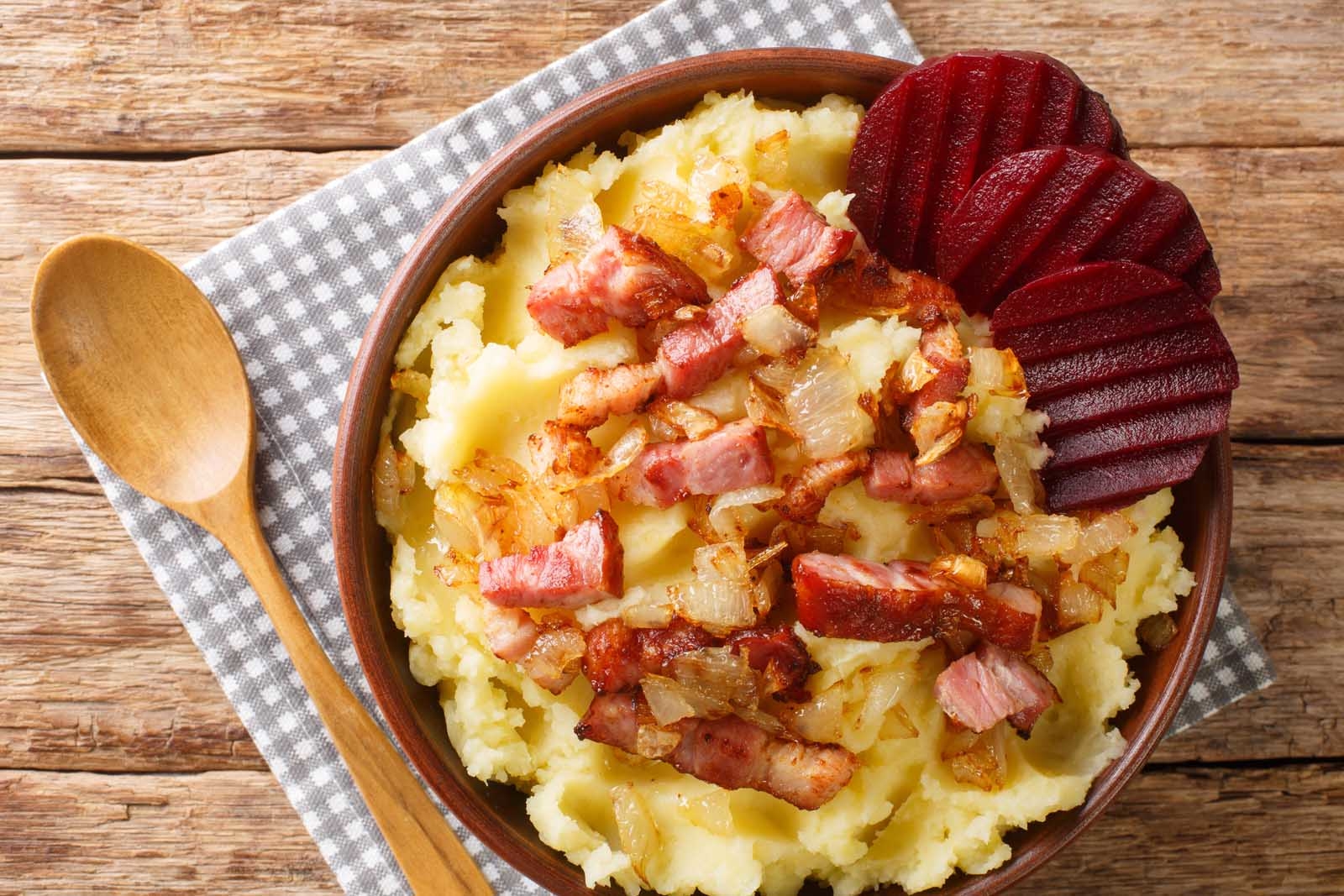
The dish’s name sounds more like a 1980s musical hit than a delicious recipe. But, it is over 200 years old. We adore it because you only need a few ingredients; mashed potatoes, diced onions, and fried bacon.
Brændende kærlighed tastes good and is super easy to make. Nowadays, people garnish it with dill, parsley, or even chopped beetroot. This recipe is perfect if you are looking for a traditional take on it.
However, if you’re short on time, you can also grab a ready-made burning love from your local Danish supermarket. Someone told us that the unique name is because you have to serve it piping hot, and the Danes love it.
Danish Dishes for a Brunch Date
We are grateful to Guy Beringer for creating the concept of “brunch.” And so are the Danes. In fact, they have gone one step further with a hygge or hyggelig brunch. All you need for a hyggelig brunch is a few friends, peaceful music, a cozy atmosphere, and good Danish cuisine. You may also like Tivoli Gardens – Copenhagen’s Enchanting Amusement Park and Pleasure Garden
3. Smørrebrød – Open Sandwich
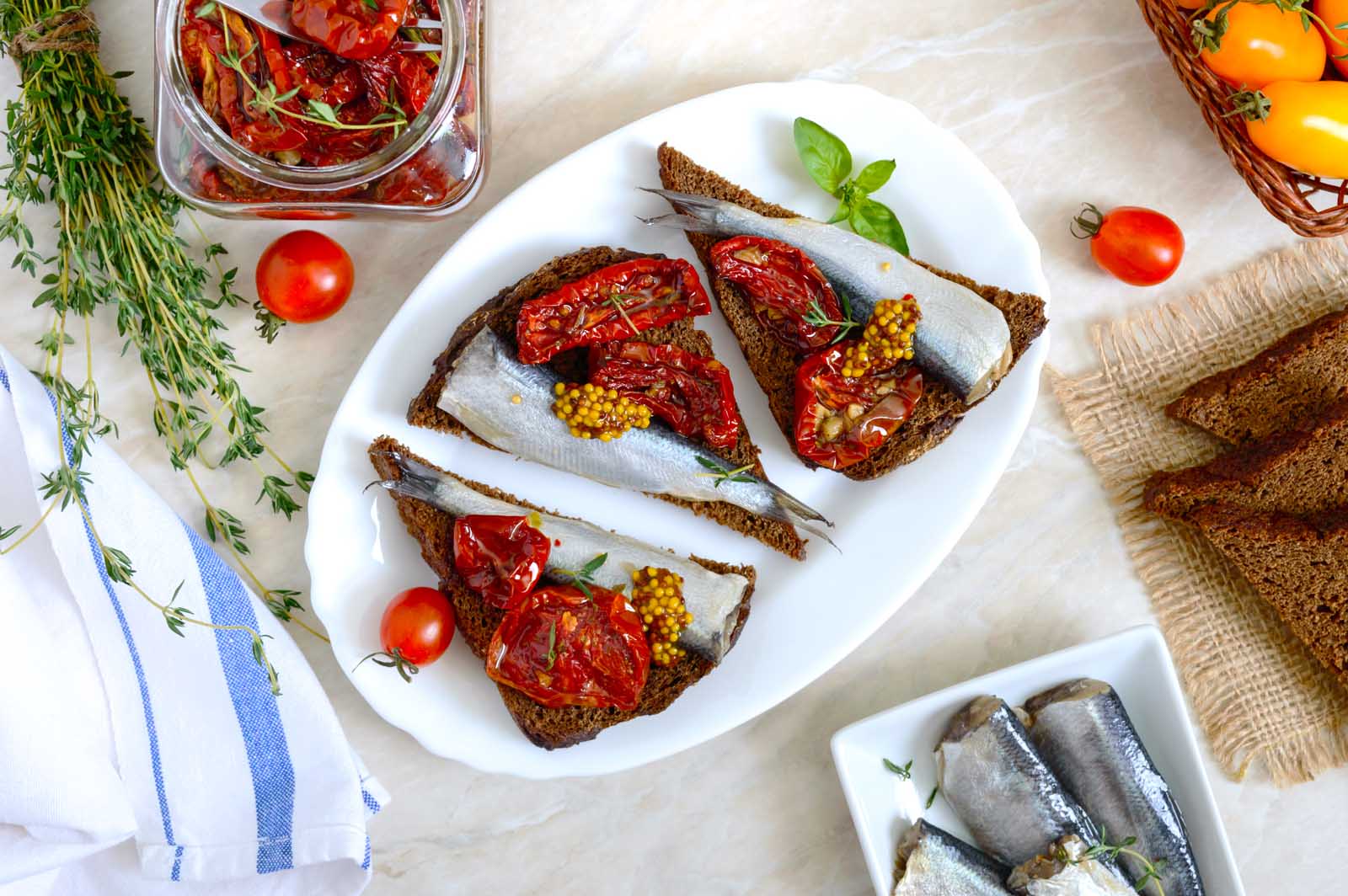
The Danish food version of the open sandwich includes delicious rugbrød (dark rye bread). If it’s made traditionally, it will be a thick, dark and rich bread with lots of butter. Slice it up and layer on your toppings.
- Frikadeller: Beef, pork, or fish meatball served with remoulade sauce on buttered rye bread.
- Leverpostej: Danish liver pate made with pig liver, flour, eggs, butter, and cream on rye bread.
- Aebleflæsk: Streaky pork belly, apples, sugar, and thyme.
- Sun over Gudhjem’: A smoked herring topping that originated in smokehouses on the Danish island of Bornholm. Delicious on buttered rye bread.
4. Hønsekødssuppe – Chicken Broth Soup
The name Hønsekødssuppe is misleading because a literal translation is “hens soup.” But, there are no poultry chunks included in the recipe.
Instead, Danes boil a whole chicken carcass to create a delicious broth. Then they add in frikadeller (meatballs) and dumplings. Interestingly, their meat diet consists of 28% poultry. So, there aren’t many chicken-based traditional Danish dishes.
5. Wienerbrød – Danish Pastries
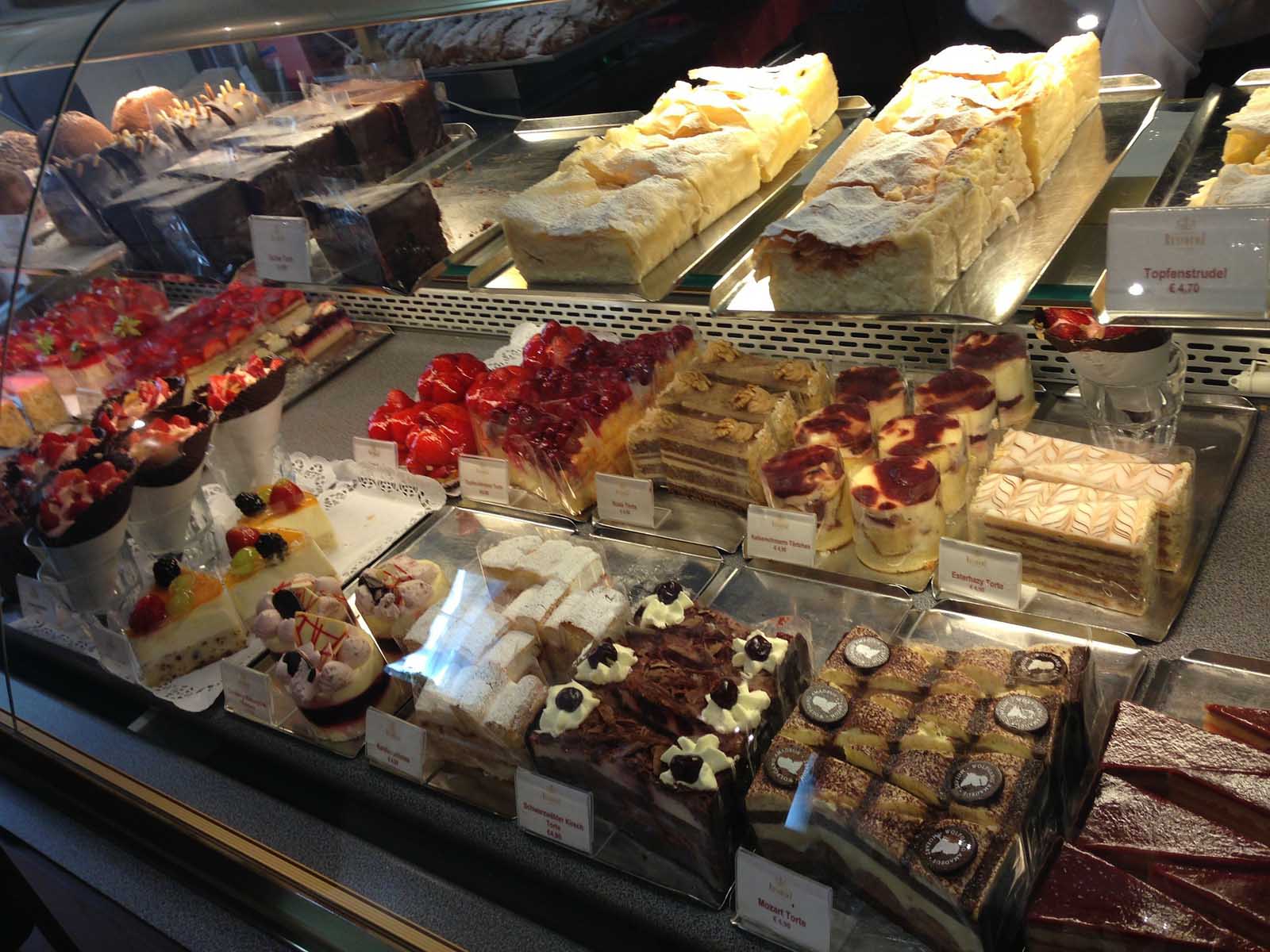
We love to order a Danish pastry with our coffee. But did you know that Danish pastries are not actually Danish food?
They were created in Vienna and came to Denmark in 1840. However, the Danes loved them so much that they became an immediate part of their culture. If you’re in Denmark, craving a Danish pastry, ask for “wienerbrød” (Vienna pastries) with your coffee.
Danish Dishes for Post-work Cocktails
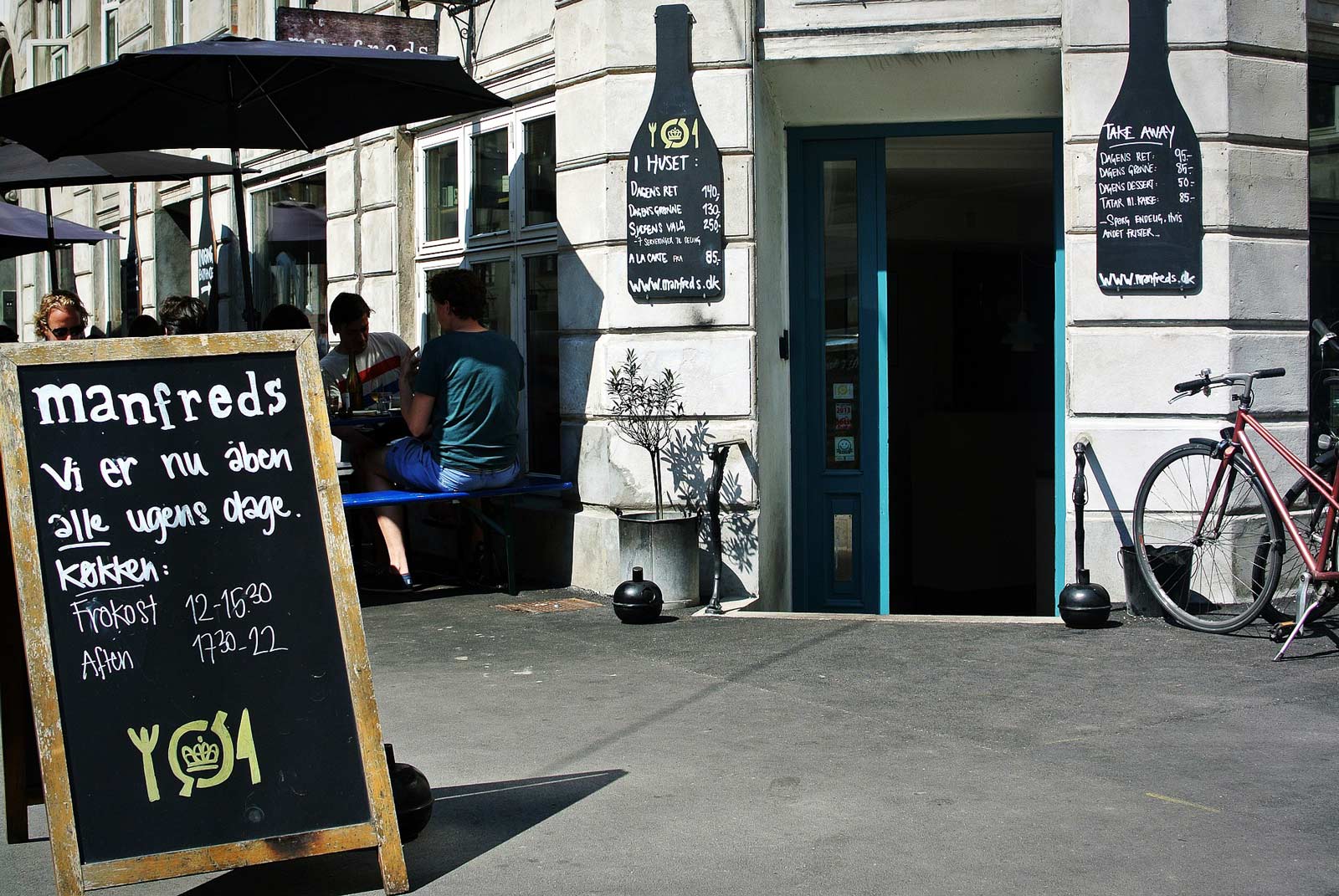
The Danes enjoy a social drink and will happily join you for a beverage on average 2.5 times a week. So, after a few cocktails or danish beer, these traditional Danish dishes are the perfect companion.
6. Flæskestegssandwich – Pork Burger
If you’ve been to Denmark, you may have seen drunk people digging into a flæskestegssandwich. It is a pork bun, and the Danes serve it with cabbage, gherkins, and pork crackling.
Some Danes also love to pour a thick gravy into the bun. By Danish food tradition, you would eat this meal on the 24th of December, but nowadays you can enjoy it any time.
7. Pølser – Hot Dog
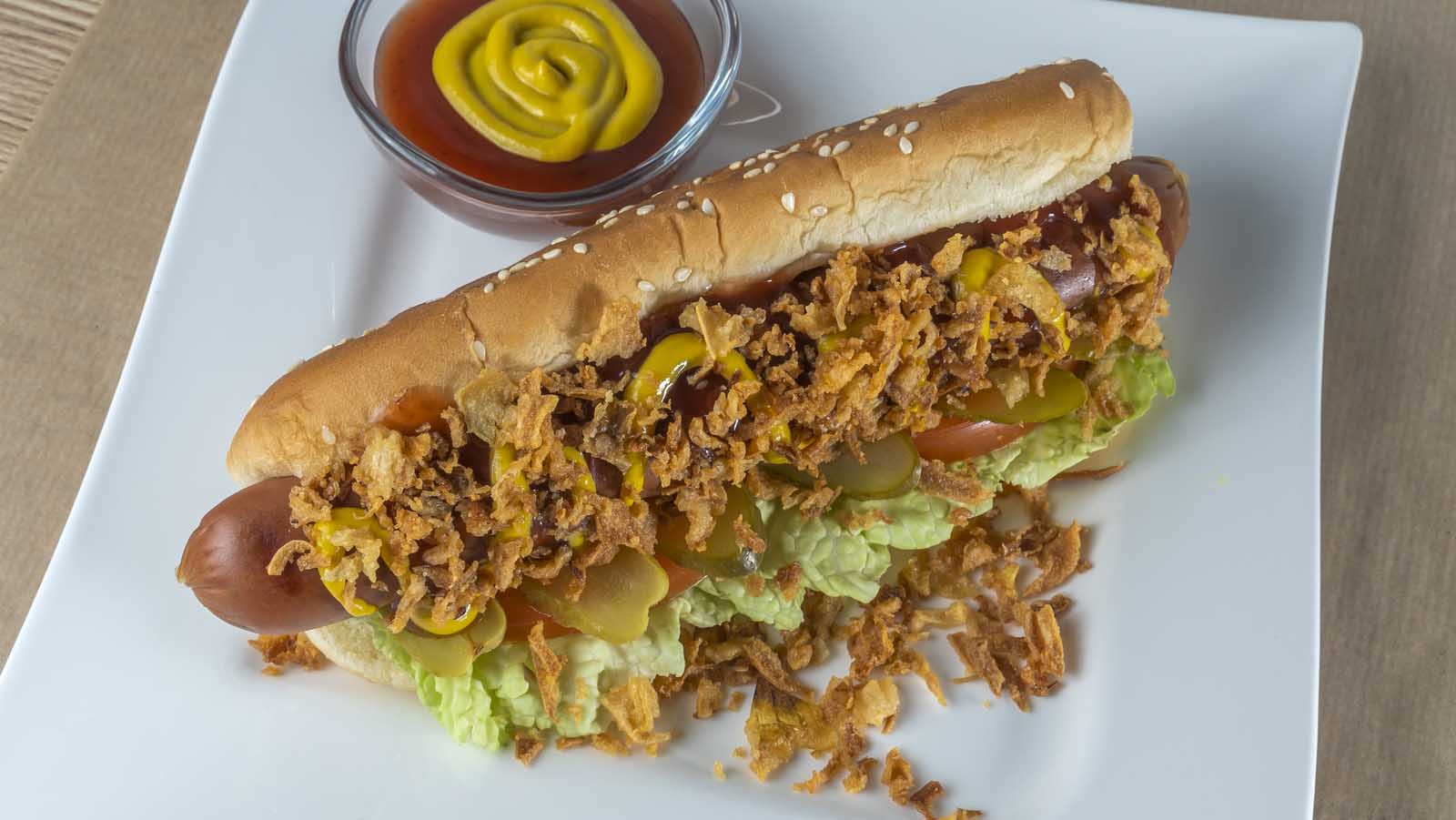
Although there are two types of pølser, many Danes would agree that a red pølser is the king of street food. On the streets of Copenhagen, you’ll find one on most intersections.
This dish is relatively new, with its roots beginning in the early 1920s. However, before grabbing the tomato ketchup, remember that this dish is Denmark-style, not an American hot dog. So, swap that tomato ketchup for apple ketchup, remoulade, mustard, lots of onions, and pickles.
Danish Dinners
In all honesty, most of the recipes so far are great for dinner. There is only one rule for Danish dinnertime: it should be a hot meal. Why? Because the sun sets in Denmark at about 3 pm during winter. So, hearty and warming meals with ingredients like boiled potatoes and roast pork are a necessity.
8. Forlorn Hare – Meatloaf
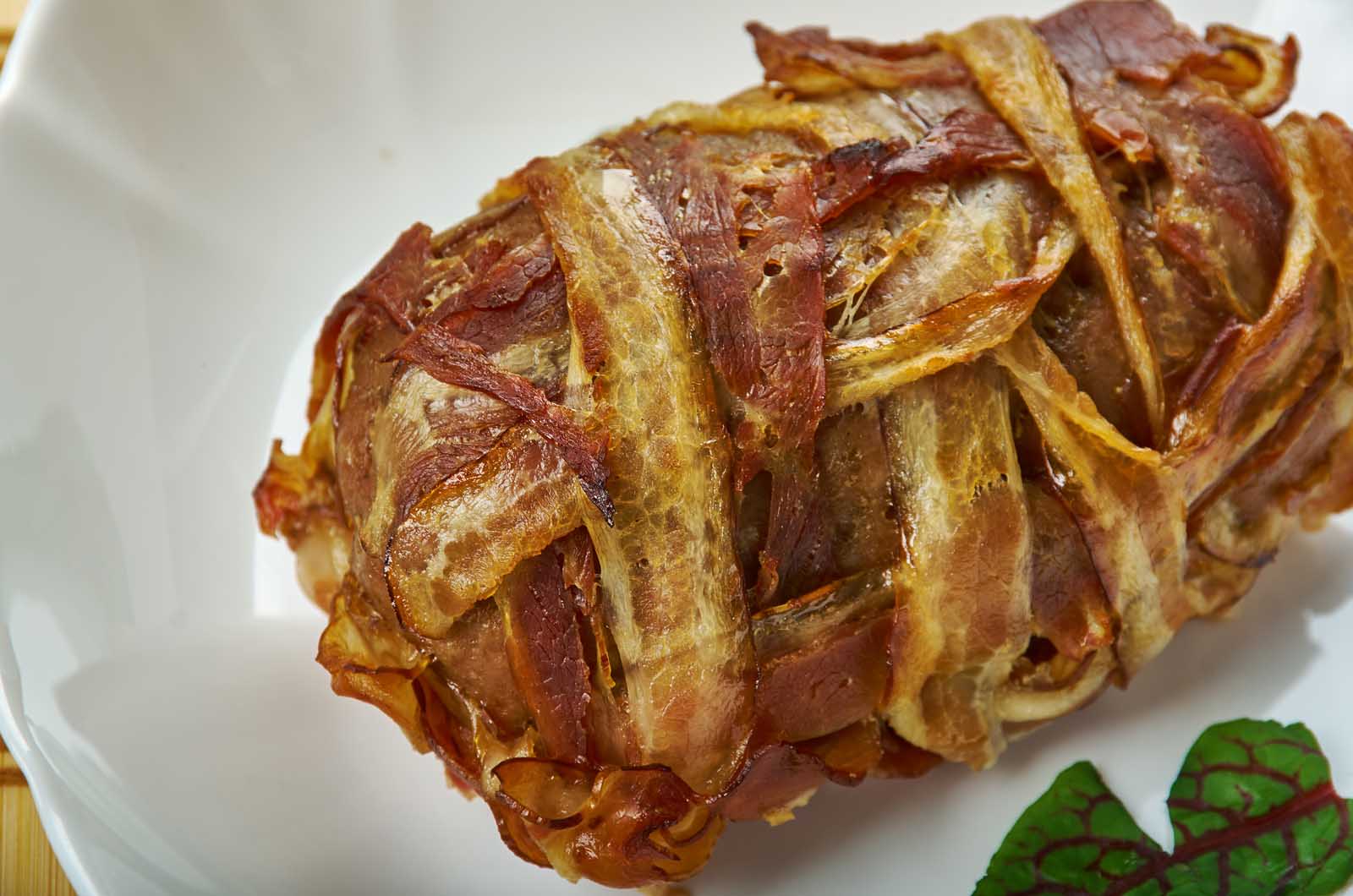
Danish meatloaf is known as forlorn hare or mock hare. For the meat, Danes will choose ½ veal and ½ pork mixed. Forlorn hare is a popular dish for families, so you can buy pre-mixed meat in the supermarket.
The trick to making a perfect forlorn hare is to wrap the meat in bacon and smother it in gravy. Although the original Danish food recipes don’t mention seasoning, many chefs add salt and pepper.
Some people also like to add a dollop of redcurrant jelly to the gravy for sweetness. The other essential ingredients are whipping cream and meat drippings from the pan. YOu have to make this at home with this recipe. It is simply delicious,
9. Mørbradgryde – Pork Tenderloin in a Cream Stew
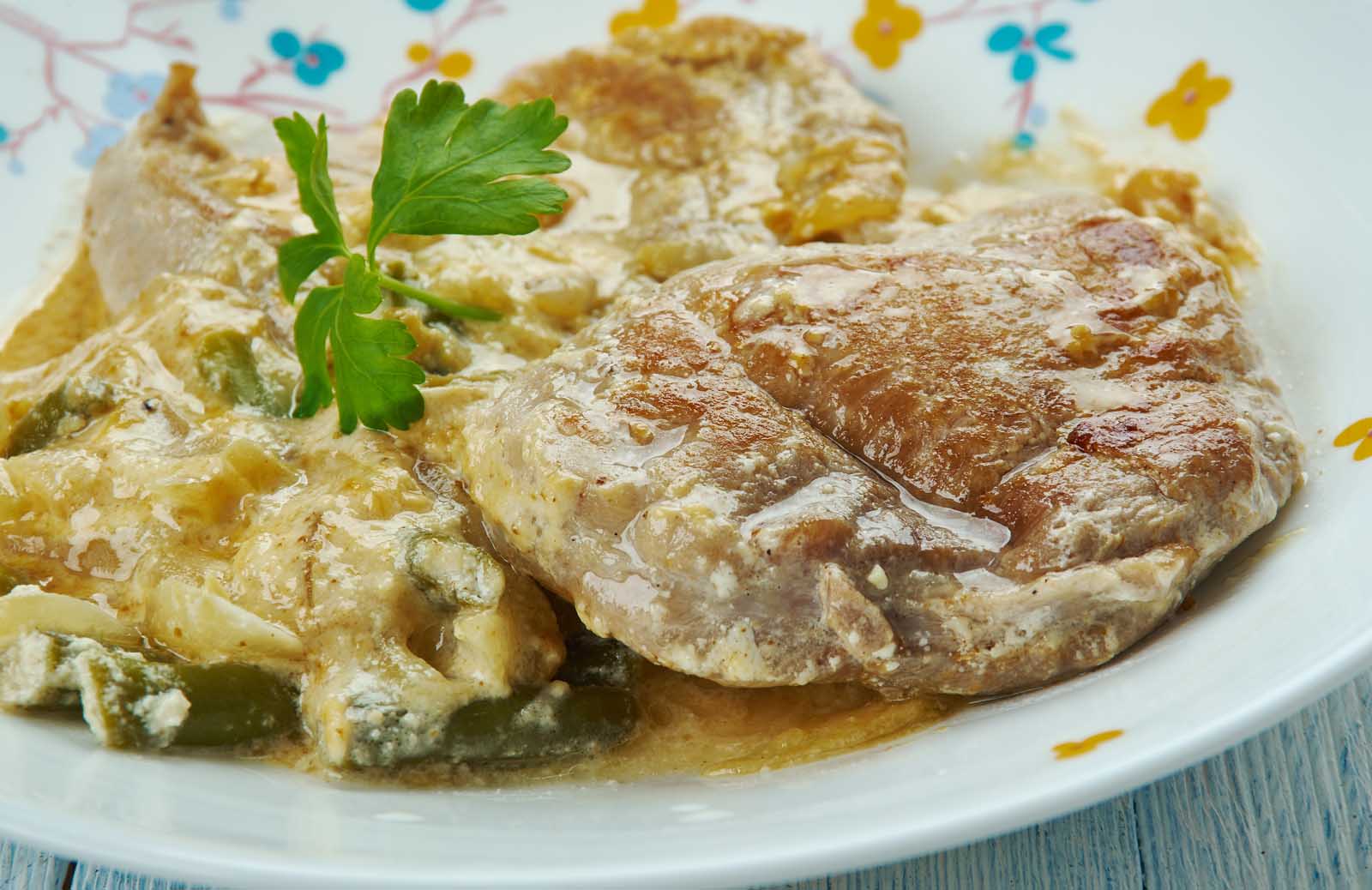
The creamy, rich sauce on mørbradgryde will satisfy even the hungriest traveler. It is ideal if you want something that you can leave to cook itself.
The preparation will only take about ten minutes, and then you should leave it to stew for 40 minutes. After that, you would usually serve it with rice or boiled potatoes. Also, some versions of this dish will include Weiner sausages.
Several traditional danish dishes include weiners because they were cheaper than the main meat. So, mothers and grandmothers put them in as a meat filler.
Danish Side Dishes
Side dishes are an excellent way to incorporate more vegetables into your Danish food. They will accompany many main meals so make the most of them.
10. Rødkål – Danish Red Cabbage
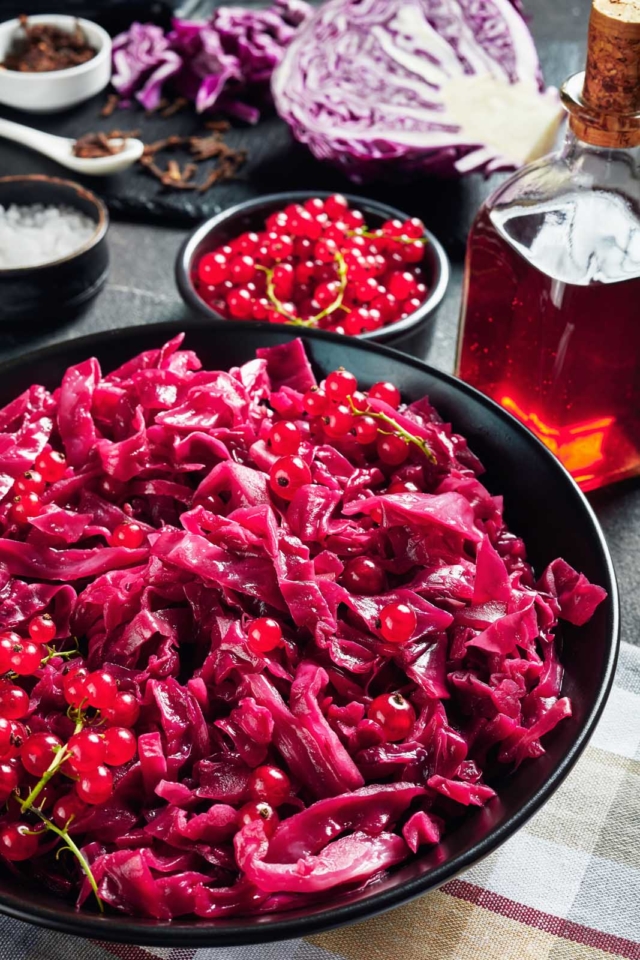
It is a staple for many peoples’ Christmas dinner, so most of us have made red cabbage at some point. However, the traditional Danish food at home has much fewer ingredients.
You’ll only need red cabbage, vinegar, currant juice, sugar, and salt. It tastes like a sweeter version of sauerkraut. Rødkål is perfect with pork meals, frikadeller (meatballs), and flæskesteg (pork burger).
11. Brunede Kartofler – Caramelized Browned Potatoes
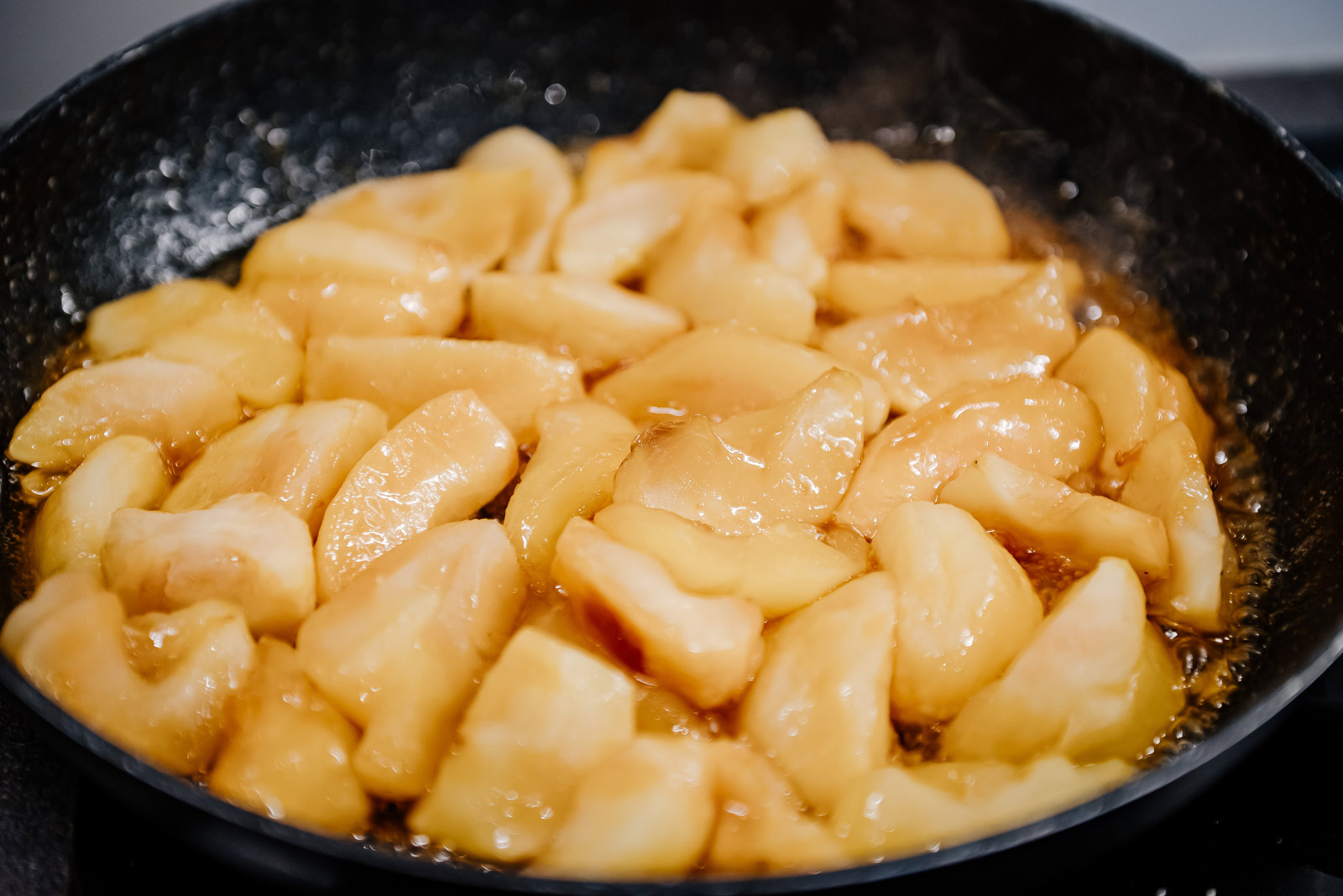
Caramelized food not only looks appealing but tastes fantastic, and it’s all because of science. A unique chemical process called Maillard Reaction happens when making caramelized dishes.
That’s one of the reasons that Brunede Kartofler (caramelized potatoes) has made it from a traditional Danish Christmas food onto the everyday menu. It pairs best with mørbradgryde (pork tenderloin in a cream stew).
Although you should use small peeled potatoes for an authentic taste, it takes time. So as a danish food at home quick hack, use new potatoes instead.
Try not to fiddle with them while caramelizing because the sugar coating will crumble. If you cook Brunede Kartofler for your Danish food friends, it will probably remind them of their childhood at Christmas.
Danish Desserts for Your Cheat Day
In America, around 45 million people are dieting. Now, we’re not sure whether their plans include a cheat day or not. But, if yours does, try these deliciously sweet Danish food treats.
12. Risalamande – Rice Pudding With Cherries and Almonds
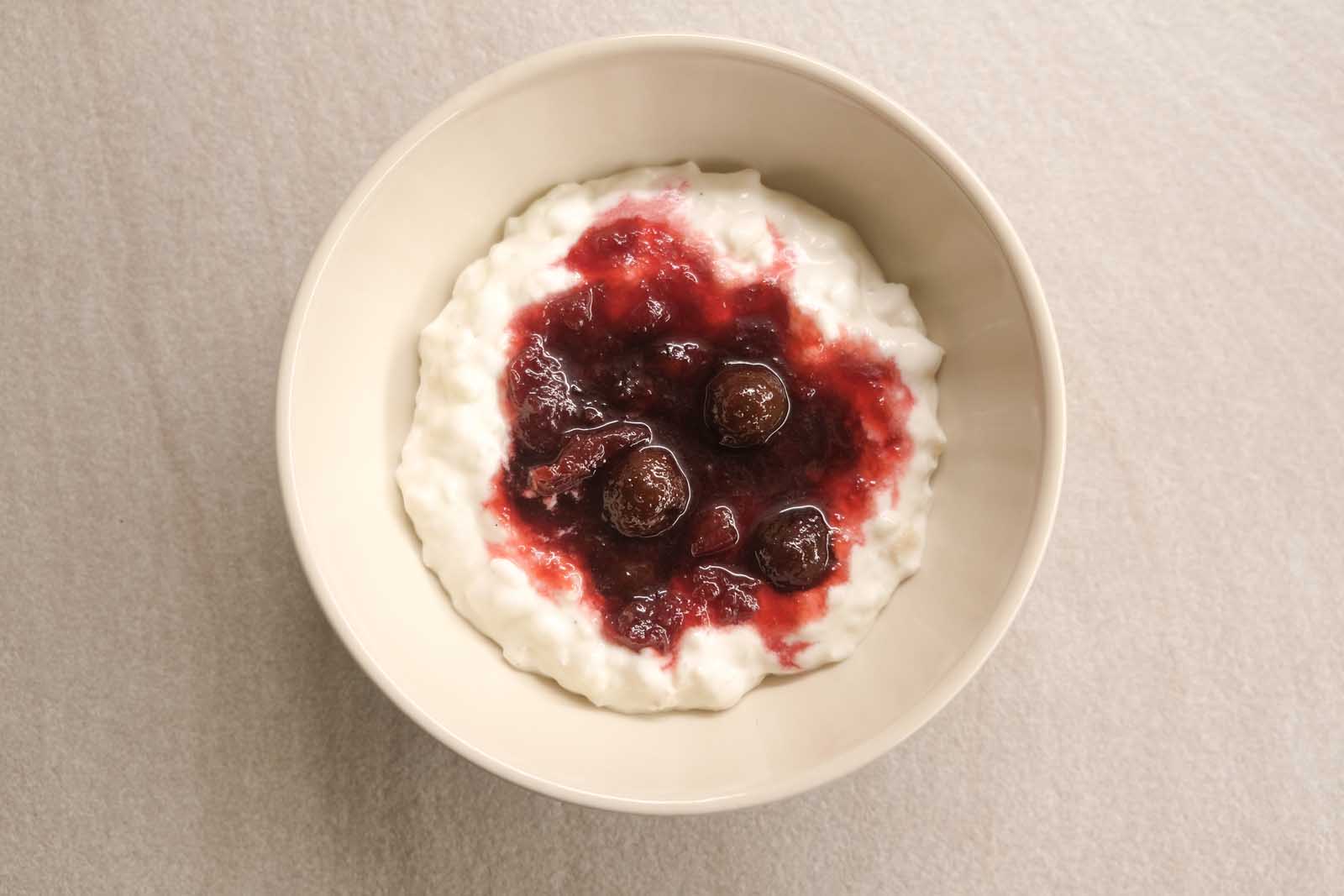
The closest thing we can compare this to is rice pudding but cold. Now cold rice pudding may not sound too appetizing, but slather it with warm cherry sauce, and it’s tantalizing.
Interestingly, in Denmark, rice pudding (risengrød) was considered a sign of poverty in the 1800s. So, affluent families added extra ingredients, such as cherries, almonds, and whipped cream. Then, they renamed it after a French dish called “riz à l’amande” meaning rice and almonds.
13. Koldskål Med Kammerjunker – Cold Buttermilk Soup With Biscuits
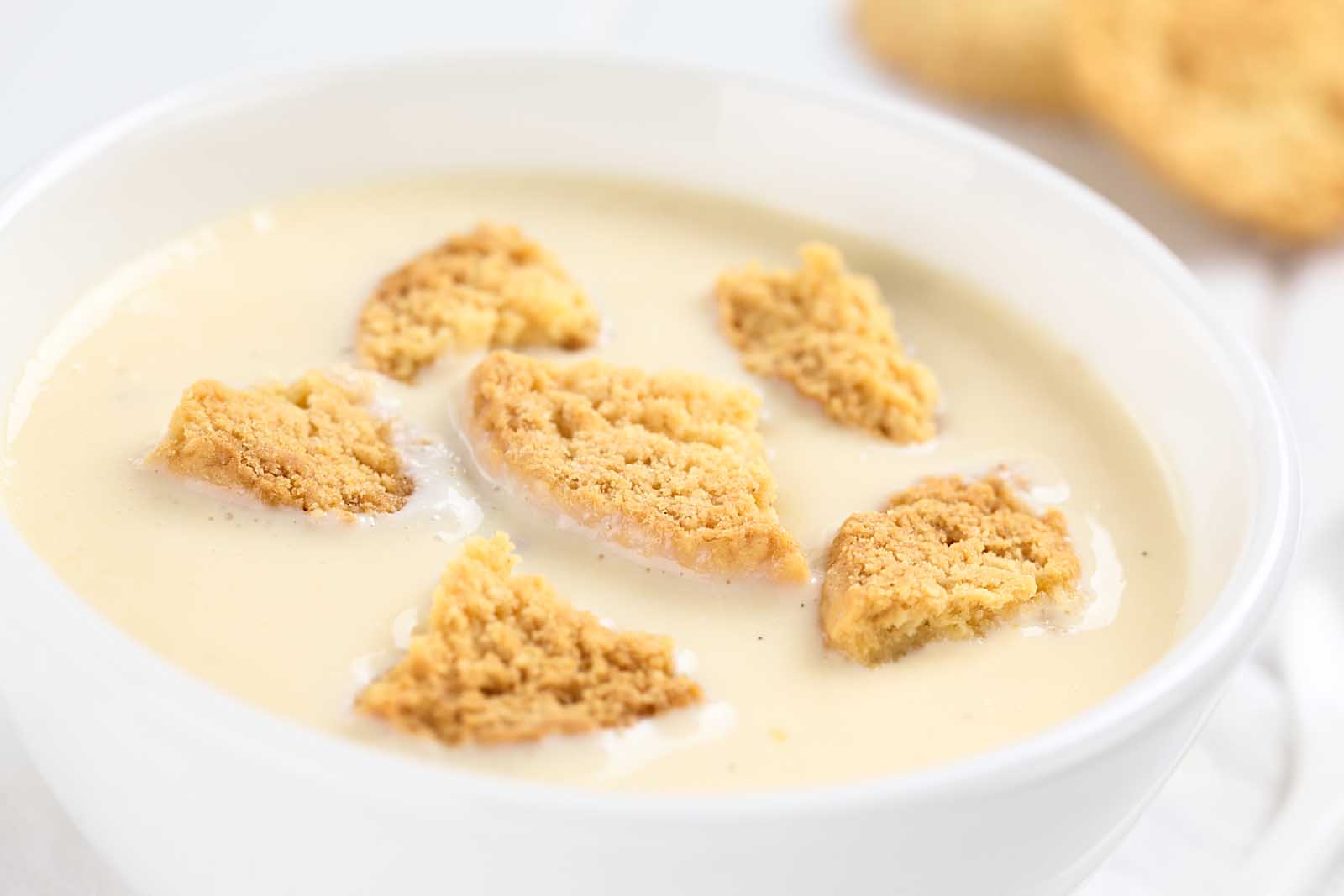
Especially popular during the 1970s, this delicious condensed milk dessert includes eggnog and vanilla. A kammerjunker is a small butter cookie that you put into the middle of the serving.
It’s a simple and refreshing dessert that is great in the sun. If you are in Denmark, you’ll find ready-made koldskål and packets of Kammerjunker in the supermarket during summer.
Danish Dishes for Parties
We all love a fun dinner party, and the Danes are no different. Your Danish friends will expect to see these appetizers if you are hosting.
14. Tarteletter – Savory Pastry Cups
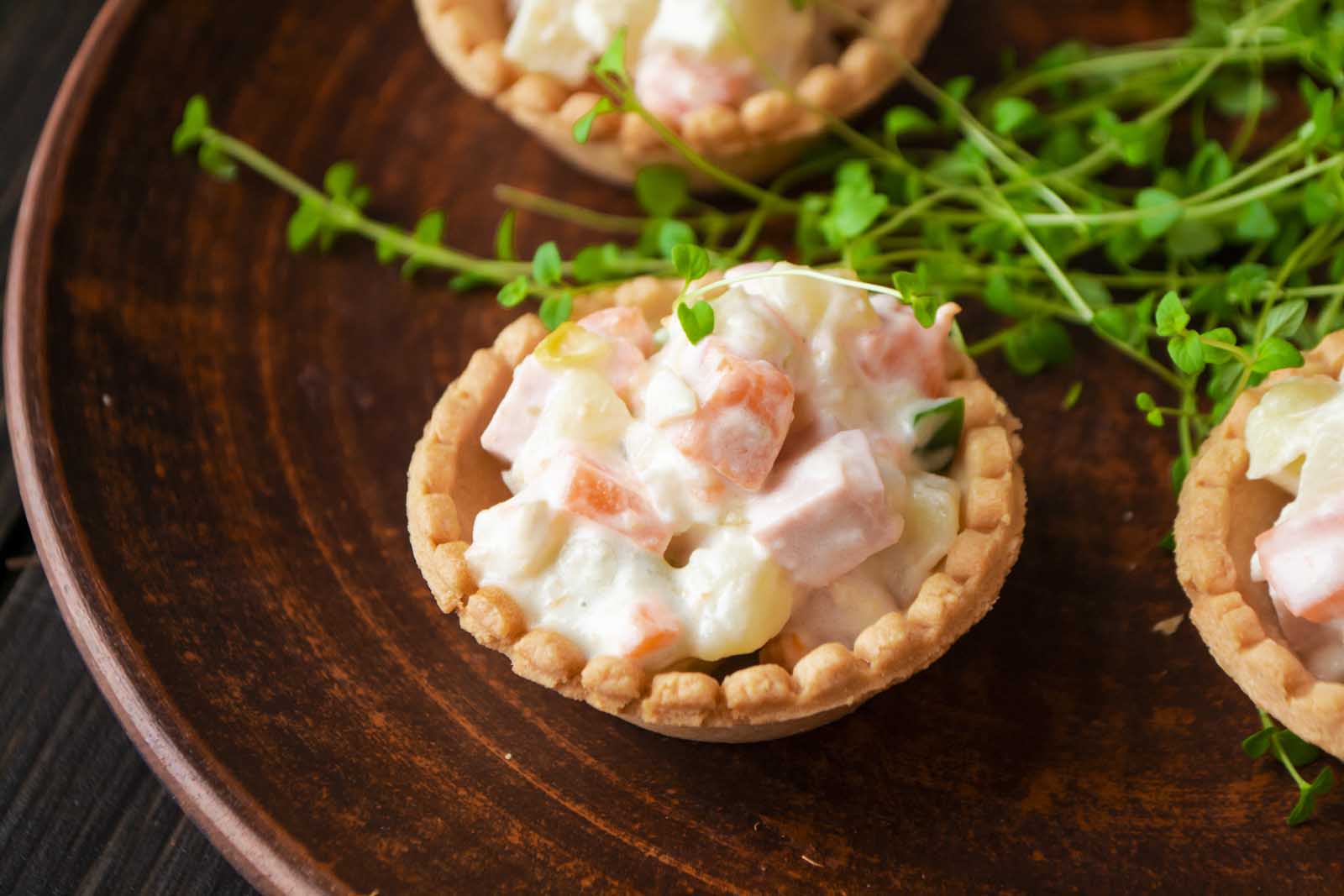
If you have ever been to an event with canapes, you would probably have tried the Western version of this traditional Danish food. Fill bite-sized pastry cups with chicken and asparagus or similar mixtures.
They are quick to make at home with pre-rolled puff pastry. These little cups have been popular since the 19th century because they’re easy and look tasty.
15. Waldorf Salad
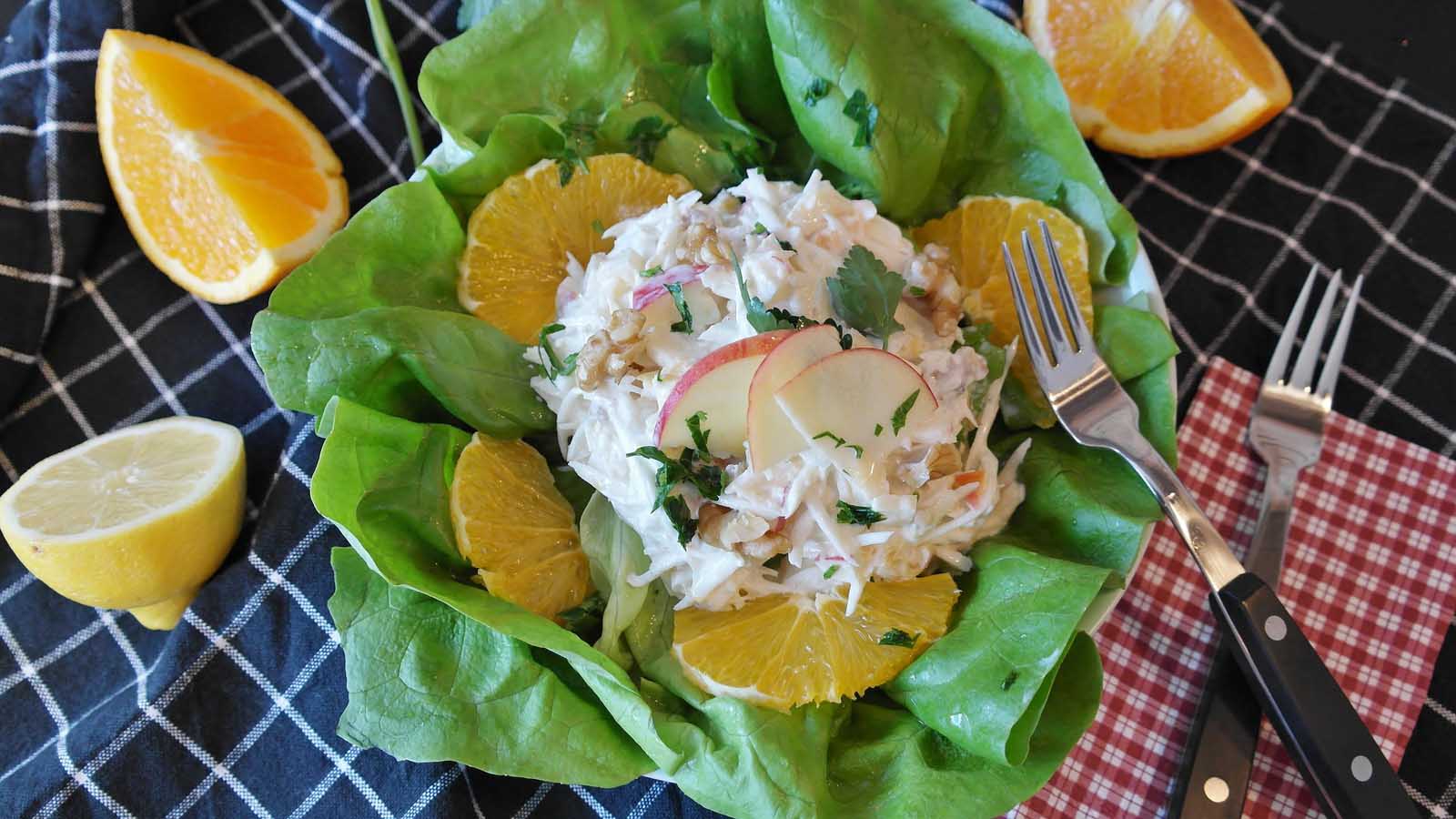
Chefs made the first Waldorf Salad at the Waldorf Hotel in New York. That’s how it got its name. But since the 1890s, the Danes have welcomed it with open arms.
People regularly serve it at dining tables in Denmark during the fall. Most add a small amount of whipped cream to the dressing to make it an authentic Danish food.
16. Pickled Herring
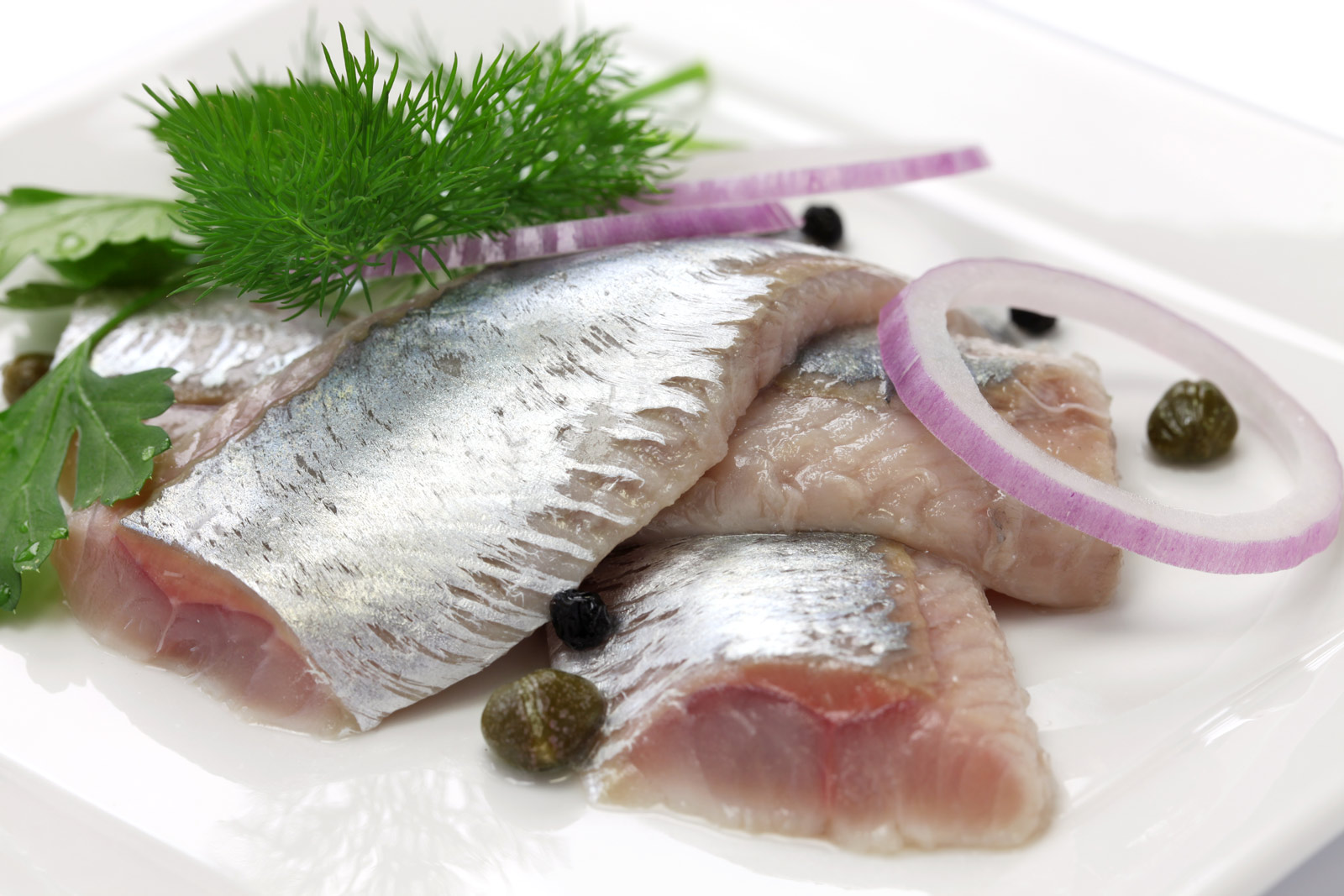
Even though I wouldn’t say that pickled herring is unique in danish cuisine it is a huge part of the Nordic diet. That is why we have included it here and it is a dish that will find in almost every danish restaurant. The Danes eat it in many different ways; smoked, breaded, fried, you name it and they have created it.
Most of the time it is served as Smørrebrød on rich dark buttered rye bread with some red onions and dill as a garnish.
Is Everything Pork?
You might have realized that most of these dishes are pork-based. That’s not because the Danes have a bias, but it is born from necessity. In the olden days, pork could be preserved by salting. As a result, it would last much longer in the Danish climate.
Nowadays, pork is important to the Danish heritage. In 2016, a Danish city even made it mandatory that school menus include pork. But, traditional Danish foods have begun to change. For example, more people are eating chicken-based meals.
What Is New Nordic Cuisine?

For the last 30 years, New Nordic Cuisine has been taking the food world by storm. Danish chefs, such as Claus Meyer, have adapted their beloved Danish cuisine. Yet, there is still a strong focus on using only local and seasonal ingredients.
In a groundbreaking achievement, Denmark received 38 Michelin stars in 2021. That is more than in any other Nordic country.
Danish Food Tours
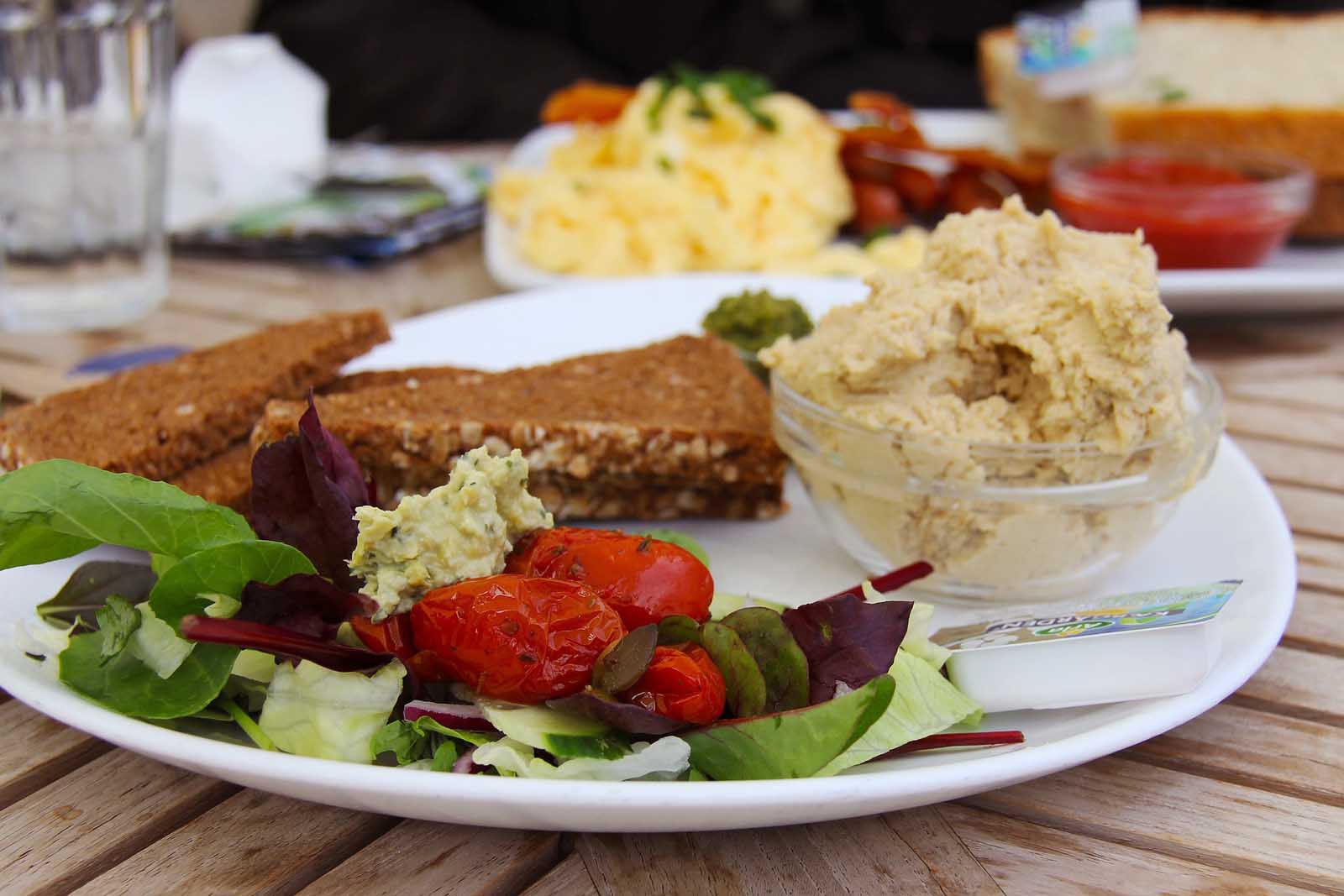
If you are in Denmark, one of the best ways to experience Danish food is to hop on a food tour. Regardless of whether you are in Copenhagen, … or…. a food tour will visit the most traditional Danish restaurants, explain each dish in more detail and show you the freshest ingredients in the local markets. This will give you great insight into the danish food culture and let you taste everything from danish meatballs to pork roast. Trust me when I say you will not leave hungry.
Check out these Food Tours below for more information:
Traditional Danish Cuisine for Every Occasion
We’ve explored the best traditional danish food from daybreak to bedtime. If you are in Denmark, try these dishes at traditional Danish restaurants, and the taste will wow you.
You can also try making them at home. But remember, the key to authentic traditional danish cuisine is to know how to make danish dishes and follow an original recipe.
Danish food is perfect for a hygge with your friends. Enjoy good company, a hearty meal, and you’ll soon understand why the Danes are so happy. Check out our Denmark travel guide for more inspiration if you found this article useful.

